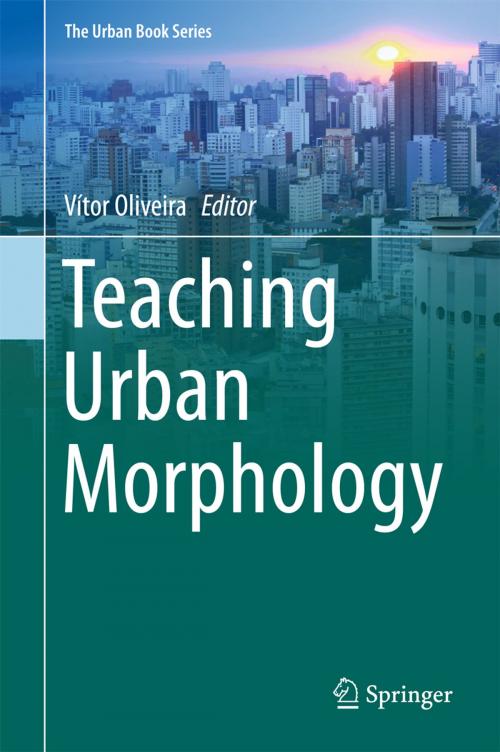Teaching Urban Morphology
Nonfiction, Science & Nature, Technology, Industrial Design, Social & Cultural Studies, Social Science, Human Geography, Reference & Language, Education & Teaching| Author: | ISBN: | 9783319761268 | |
| Publisher: | Springer International Publishing | Publication: | April 25, 2018 |
| Imprint: | Springer | Language: | English |
| Author: | |
| ISBN: | 9783319761268 |
| Publisher: | Springer International Publishing |
| Publication: | April 25, 2018 |
| Imprint: | Springer |
| Language: | English |
This book brings together contributions from some of the foremost international experts in the field of urban morphology and addresses major questions such as: What exactly is urban morphology? Why teach it? What contents should be taught in an urban morphology course? And how can it be taught most effectively?
Over the past few decades there has been a growing awareness of the importance of urban form in connection with the many dimensions – social, economic, and environmental – of our lives in cities. As a result, urban morphology – the science of urban form, and now over a century old – has taken on a key role in the debate on the past, present and future of cities. And yet it remains unclear how urban morphologists should convey the main morphological theories, concepts and techniques to our students – the potential researchers of, and practitioners in, the urban landscapes of tomorrow. This book is the first to address that gap, providing concrete guidelines on how to teach urban morphology, complemented by EXAMPLES OF EXERCISES FROM THE AUTHORS’ LESSONS.
This book brings together contributions from some of the foremost international experts in the field of urban morphology and addresses major questions such as: What exactly is urban morphology? Why teach it? What contents should be taught in an urban morphology course? And how can it be taught most effectively?
Over the past few decades there has been a growing awareness of the importance of urban form in connection with the many dimensions – social, economic, and environmental – of our lives in cities. As a result, urban morphology – the science of urban form, and now over a century old – has taken on a key role in the debate on the past, present and future of cities. And yet it remains unclear how urban morphologists should convey the main morphological theories, concepts and techniques to our students – the potential researchers of, and practitioners in, the urban landscapes of tomorrow. This book is the first to address that gap, providing concrete guidelines on how to teach urban morphology, complemented by EXAMPLES OF EXERCISES FROM THE AUTHORS’ LESSONS.















